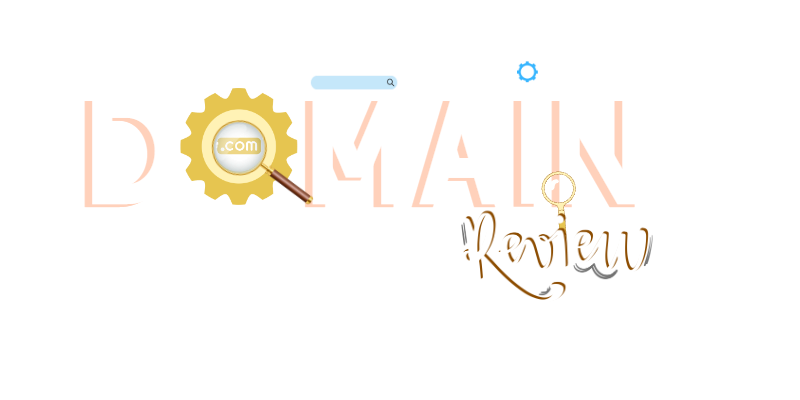Introduction
When it comes to optimizing a website for search engines, backlinks play a crucial role in building a strong link profile. Backlinks, also known as inbound links or incoming links, are links from other websites that direct users to your website. These links are like votes of confidence from other websites, indicating that your website is valuable & trustworthy. Search engines, such as Google, consider backlinks as a measure of the authority and relevance of a website, which can impact its search rankings.
Backlinks have been an essential element of search engine optimization (SEO) strategies for years, their significance continues to grow. In this article, we will explore the role of backlinks in SEO and how they can contribute to building a strong link profile for your website.
The Benefits of Backlinks in SEO
Backlinks offer several benefits when it comes to SEO. Here are some key advantages:
Improved Search Engine Rankings: Backlinks are considered one of the most important ranking factors by search engines. When reputable websites link to your website, it signals to search engines that your website is valuable and relevant. This can result in higher search engine rankings, leading to increased visibility and organic traffic to your website.
Increased Website Authority: Backlinks can help establish your website as an authoritative source in your niche. When other websites with high authority link to your website, it can enhance your website's credibility and reputation. This can lead to higher trust from users, which can result in increased engagement, longer visit durations, and better conversion rates.
More Referral Traffic: Backlinks can also ride referral traffic to your website. When users click on a backlink from another website, they are directed to your website, resulting in potential new visitors & potential customers. Referral traffic can be highly targeted & engaged, as users are already interested in the content of the linked website.
Better Indexing & Crawling: Backlinks can help search engines discover & index your website's pages more effectively. When a search engine crawler encounters a backlink of your website on another website, it can follow the link to your website & index the linked page. This can help improve the visibility of your website's pages in search results.
How to Acquire Backlinks
Acquiring high-quality backlinks requires effort & strategic planning. Here are some strategies to consider:
Create High-Quality Content: The foundation of any successful backlink strategy is creating high-quality, valuable & shareable content. When you publish unique, informative & engaging content, it increases the likelihood of other websites linking to it. Focus on creating content that provides value to your target audience and stands out from the competition.
Guest Blogging: Guest blogging is a popular strategy to acquire backlinks. Look for authoritative websites in your niche that accept guest posts and offer to write high-quality guest posts in exchange for a backlink. Ensure to follow the website guidelines and provide valuable and relevant content that aligns with their audience.
Build Relationships with Influencers and Industry Experts: Building relationships with influencers and industry experts in your niche can lead to backlink opportunities. Engage with them on social media, participate in industry forums, and attend relevant events to establish connections. Once you have built a relationship, you can reach out and ask for a backlink or collaborate on content that includes a backlink to your website.
Broken Link Building: Broken link building involves finding broken links on other websites and reaching out to the website owners to offer a replacement link from your website. This can be an effective strategy as it provides value to the website owner by helping them fix broken links, while also securing a backlink for your website.
Social Media and Online Communities: Engaging with your target audience on social media and online communities can also lead to backlink opportunities. Share your content, participate in discussions, and provide value to the community. When you establish yourself as an authority, other members may naturally link to your website in their content.
Monitor Brand Mentions: Set up alerts to monitor mentions of your brand or website online. When you come across a mention that doesn't include a link, reach out to the website owner and request a backlink. This can be an effective way to capitalize on existing brand mentions and turn them into backlinks.
Create Linkable Assets: Linkable assets are pieces of content that are highly valuable and shareable, such as infographics, videos, or original research. Creating linkable assets can increase the likelihood of other websites linking to your content. When you create unique and valuable assets, other websites are more likely to link to them as a reference or source of information
Best Practices for Using Backlinks
While backlinks can be beneficial for SEO, it's essential to follow best practices to ensure that they are used effectively. Here are some best practices for using backlinks:
Focus on Quality over Quantity: It's better to have a few high-quality backlinks from definitive websites as compared to large number of low-quality backlinks. Quality is more important than quantity when it lead to backlinks. Look for websites with high authority, relevance to your niche, with a good reputation.
Diversify Your Link Profile: Avoid relying too heavily on a single source for backlinks. It's important to have a diverse link profile with backlinks from various websites, types of content & anchor text. This helps to create a natural-looking link profile and reduces the risk of being penalized by search engines for spammy or manipulative link building practices
Relevance is Key: Ensure that the backlinks you acquire are relevant to your website's content and niche. Backlinks from websites that are topically relevant to your website are considered more valuable by search engines. Avoid acquiring backlinks from unrelated or low-quality websites, as they may have little to no impact on your SEO efforts.
Avoid Black Hat SEO Tactics: Avoid using black hat SEO tactics, such as buying backlinks, link farms, or spamming forums and comment sections with links. These tactics are against search engine guidelines and can result in severe penalties, including being deindexed from search results. Stick to ethical and white hat SEO practices to build a strong and sustainable link profile.
Regularly Monitor and Disavow Unwanted Backlinks: Regularly monitor your backlink profile using tools such as Google Search Console or third-party backlink analysis tools. If you identify any low-quality, spammy, or irrelevant backlinks, consider disavowing them. Disavowing backlinks is the process of telling search engines to ignore those backlinks when evaluating your website's link profile.
Conclusion
Backlinks play a crucial role in SEO, for building a strong link profile is essential for improving search engine rankings, increasing website authority, and driving referral traffic. By following best practices such as focusing on quality over quantity, diversifying your link profile, and avoiding black hat SEO tactics, you can effectively leverage the power of backlinks to boost your website's SEO efforts. Remember to regularly monitor your backlink profile & disavow any unwanted or low-quality backlinks. By implementing a strategic and ethical approach to backlink building, you can enhance your website's SEO performance and achieve long-term success in the competitive online landscape.
So, if you want to improve your website's search engine rankings and establish a strong online presence, don't underestimate the importance of backlinks in SEO. Invest time and effort into building a diverse and high-quality link profile, and you'll see the benefits in terms of improved organic rankings, increased website authority, and targeted referral traffic. With the right approach and adherence to best practices, backlinks can be a powerful tool in your SEO toolkit, helping you stay ahead of the competition and achieve your online marketing goals.



